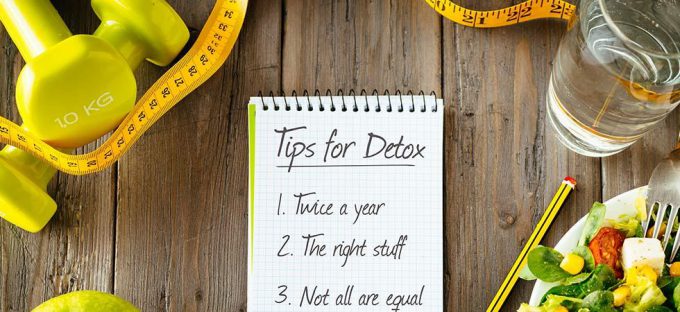3 Tips to Doing Detox Right
This post is also available in:
 French
French
Nowadays, detoxing is on everyone’s mind, especially when living in increasingly toxic environments and experiencing negative health effects.
If you think that a detox might be right for you, there’s a way to do it right and ensure you are safely achieving the results you are looking for.
Here are three easy tips to keep in mind to make the most out of your detox:
- Do it at least twice a year.
Your body is always detoxing—nonstop, 24/7—but it may not be doing it in the most efficient way because of nutrient deficiencies, stress, and even genetic factors. Based on my experience, I believe people can benefit from doing a dedicated detox protocol twice per year at the change of seasons (typically in March/April and in September/October). These types of detoxes will be a bit more rigorous than a gentle daily detox and should involve dietary changes, as well as the inclusion of specific supplements and some lifestyle changes. In addition to the biannual detoxes, I also think it is helpful to do some daily detoxing by eating your best, taking supportive nutrients, and reducing your stress to the best of our ability. - Ensure proper nutrient intake.
- There is a common misconception that a detox must be a stringent fasting regimen. Often, it is associated with intermittent or complete abstinence from food or the consumption of fresh juices in place of food. What many people do not realize is that proper detox is just the opposite—specific nutrients are required to effectively eliminate toxins.
- Most people, even when eating a healthy diet, undoubtedly have some degree of nutrient insufficiency or deficiency. The degree of detoxing required is limited by the required nutrient that is in the lowest amount. Therefore, it is essential to get a complex array of macronutrients—like protein, carbohydrates, and fats—as well as vitamin and mineral cofactors—not to mention the protective, antioxidant phytonutrients. Taking shortcuts to detox by not accounting for nutrition will only short-circuit your detox pathways, so it’s imperative that you are taking the right supplements in combination with a nutrient-dense diet.
- Choose a safe detox.
- There are a variety of so-called detox methods available—everything from the extreme fasts to juice fasts to eating specific foods and taking certain supplements. With so much on the market, it seems like everyone has a detox program to tout. But they are not all equal, and some may not be adequately, scientifically formulated to provide appropriate nutritional support for your body’s metabolic detoxification pathways. Some may even be unhealthy and lead to negative symptoms.
- With that in mind, an appropriate detox may also provoke some changes in the body that could lead to subtle symptoms, like causing a bit more tiredness or discomfort from caffeine withdrawal. Unfortunately, many detox programs haven’t been researched extensively. Just last year, Drs. Klein and Kiat published a review of detox diets in the Journal of Human Nutrition and Dietetics.1 Their findings suggest “there is very little evidence to support the use of these diets.”
In summary, if you feel tempted to try out the latest detox program, keep this checklist in mind. It’s designed to help you know how often to do a detox, the importance of targeted nutrients, and, most of all, how to ensure your chosen detox is safe and based on good science. And, as with all new programs, discuss whichever detox program you are interested in with your healthcare practitioner before starting.
- Klein AV, Kiat H. Detox diets for toxin elimination and weight management: a critical review of the evidence. J Hum Nutr Diet. 2015 Dec;28(6):675-86. doi: 10.1111/jhn.12286. Epub 2014 Dec 18.
Leave a reply






